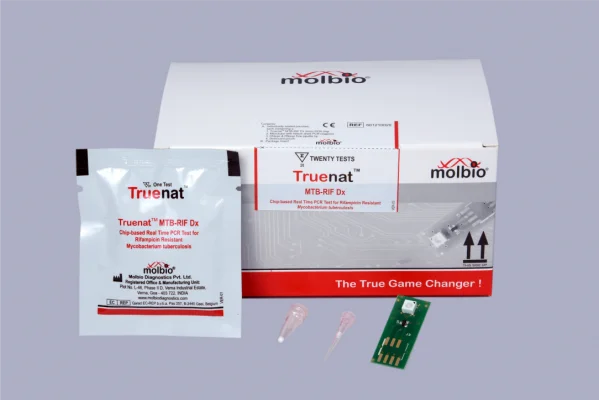By Iyemah David
The Federal Government of Nigeria said that the Truenat Initiative, a rapid molecular testing system, will help to transform Tuberculosis (TB) diagnosis across the country.
Director of the Public Health, Federal Ministry of Health and Social Welfare, Dr Anyaike Chukwuma stated this in an interview on Sunday in Abuja.
Dr Chukwuma said that the initiative would help in assessing TB sufferers in hard-to-reach areas where diagnosis remained a pressing concern.
The Truenat Initiative, supported by the Stop TB Partnership and United States Agency for International Development (USAID) is introducing New Tools Project (iNTP) in peripheral facilities across Nigeria.
The strategic approach aims to bring molecular testing for TB closer to communities in need areas in order to ensure improved access to rapid and accurate diagnosis.
The director said that the introduction of Truenat marked a significant milestone in the country’s fight against TB.
He said that the country’s TB burden was among the highest on the continent, contributing significantly to the global TB burden.
“With Nigeria bearing one of the largest burdens of TB in Africa, the introduction of the Truenat initiative represents a significant step forward in the fight against the disease,” he said.
Dr Chukwuma said that the country faced challenges in accurate TB diagnosis with a considerable gap between estimated incidence and reported diagnoses.
According to him, access to rapid molecular testing has been limited, thereby hindering timely diagnosis and treatment initiation.
“The initiative underscores government’s commitment to addressing the TB epidemic comprehensively, with a focus on improving diagnosis, treatment, and overall patient care.
“The system has demonstrated impressive results, with no fewer 100,000 samples tested between November 2021 and September 2023.
“The introduction of Truenat led to a significant increase in access to rapid molecular diagnostics, with a 100 per cent increase in the number of people tested with a WHO-recommended molecular diagnostic in supported facilities,” he said.
He noted that lessons learnt on the operational research at the implementation phase highlighted the feasibility and acceptability of Truenat among healthcare workers.
The director said that challenges such as equipment maintenance and errors were addressed through comprehensive training and technical support mechanisms.
He said that engagement with key stakeholders and demand creation strategies were crucial in ensuring the success of the initiative.
“With continued collaboration and investment, the country is poised to make significant strides in its TB control efforts,” he said.
According to the World Health Organization (WHO), 41 per cent of people with TB in 2022 went without a diagnosis or were not accounted for in national data.
One of the main factors contributing to the country’s low detection for TB is the lack of access to rapid molecular testing, making only about 68 per cent of people with TB to undergo the testing and diagnosis.




